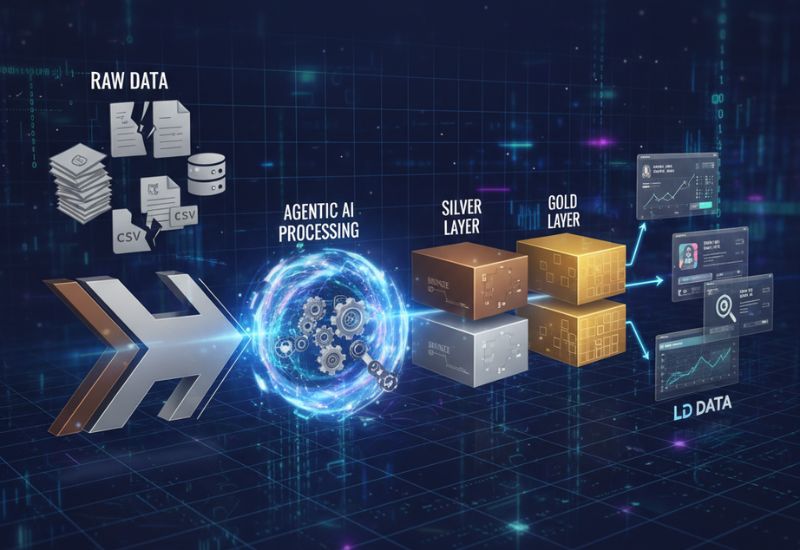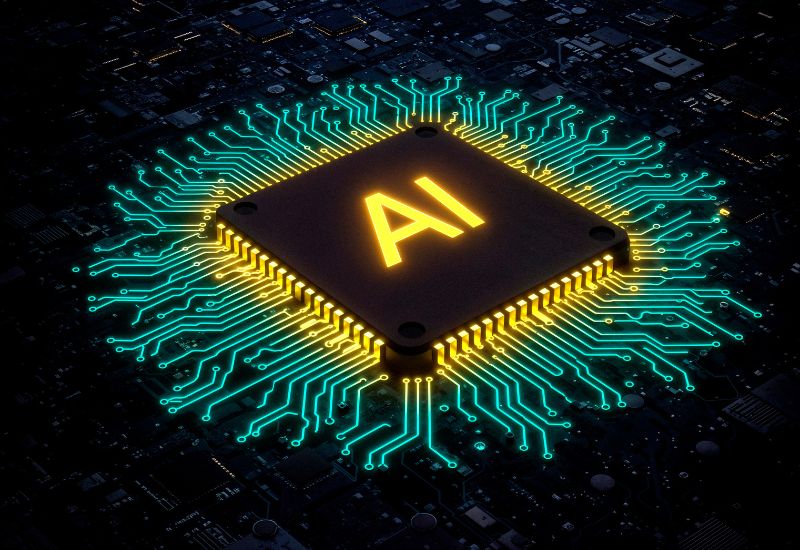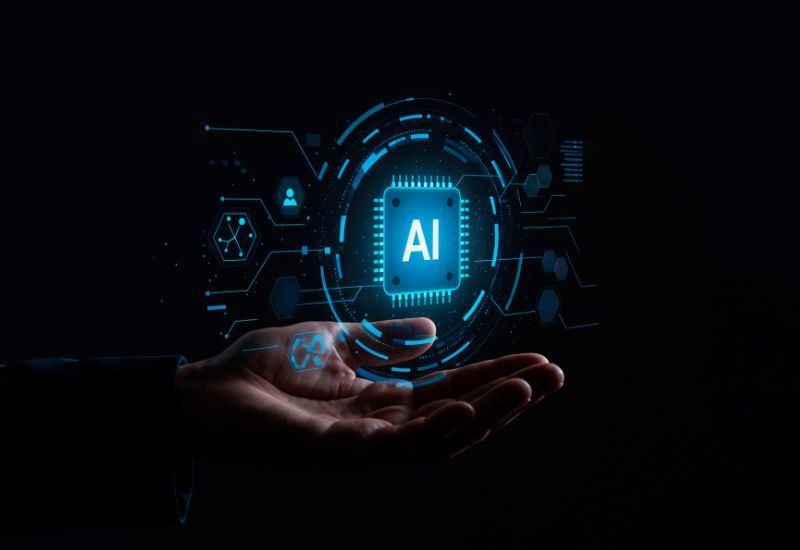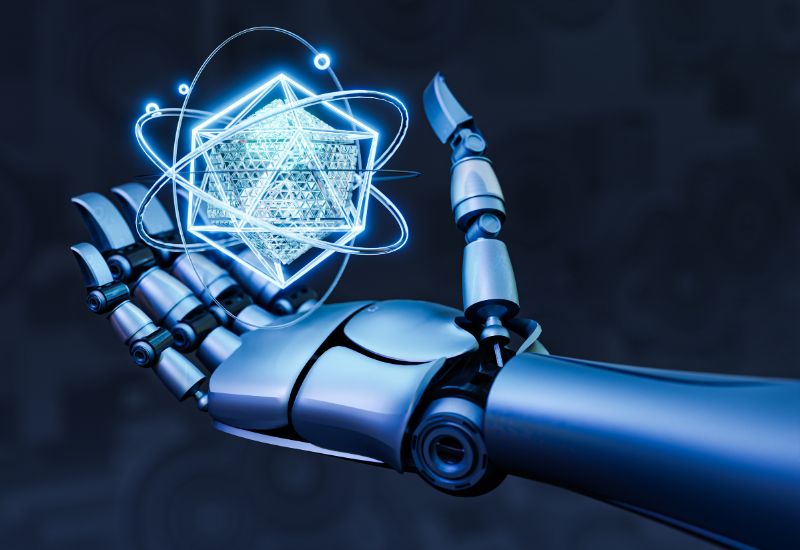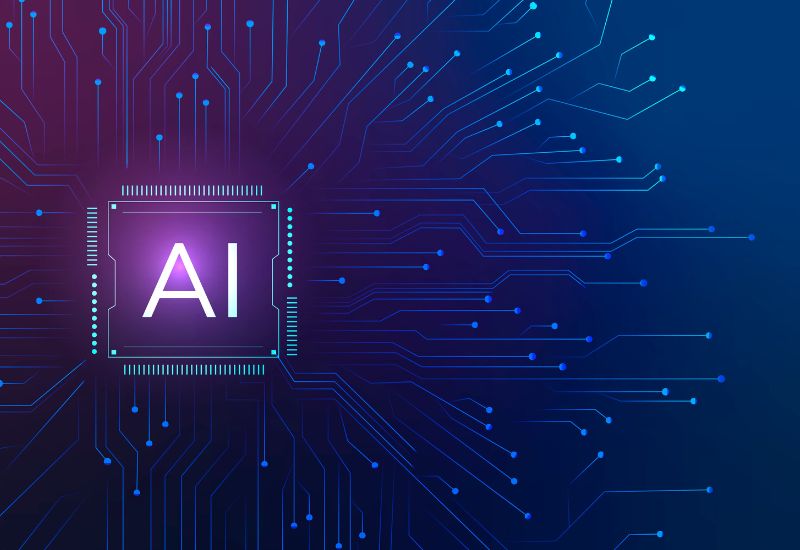Top 8 Agentic AI Use Cases & Examples
Artificial Intelligence is growing smarter and more capable. With agentic AI, machines don’t just wait for commands anymore. They take action on their own, choose what to do next, and complete tasks across different tools and systems. This shift is helping businesses work faster and more efficiently.
A recent IBM study reveals a strong shift towards agentic AI, with 70% of surveyed executives considering it essential for their organization's future. This research, involving 2,900 global executives, indicates that 83% expect AI agents to boost process efficiency and output by 2026, and 71% anticipate agents will autonomously adapt to changing workflows. The report underscores that AI-enabled workflows are projected to jump from 3% to 25% by the end of 2025, highlighting a significant move from experimental AI to core business integration.
Major players are already embracing this change: a McKinsey report from Q1 2025 indicates that 45% of Fortune 500 firms are piloting or in early production with agentic systems. Furthermore, Microsoft's open-source AutoGen framework for orchestrating AI agents has been adopted by over 40% of Fortune 100 companies by Q2 2025. These numbers highlight a growing industry commitment to agentic AI as a strategic differentiator.
In this blog, you'll find practical ways agentic AI is being applied, along with real examples from a range of fields. We will delve into how organizations are integrating these intelligent systems, showcasing real-world use cases of AI agents that are transforming operations from the ground up, building on the core principles of agentic AI.
Agentic AI Use Cases in Customer Service and Call Centers
Agentic AI use cases in customer service are helping call centers work better. Most call centers still rely on basic bots that can only answer simple questions or forward the call to someone else. But agentic AI doesn’t just reply and wait. It understands the problem, figures out what needs to be done, and completes the task without needing help from a human.
For example, if someone calls about a billing issue, agentic AI can check their account, find the mistake, fix it, update the records, and even send a confirmation message. This end-to-end execution is a hallmark of an effective agentic AI workflow.
What does it help with?
- Solving issues by itself: It doesn’t just collect information. It can raise tickets, send updates, and even book follow-ups on its own.
- Understanding the situation: If a customer sounds upset or is calling again, it picks up on that and adjusts how it handles the call.
- Doing the background work: It connects with tools like CRMs and billing systems, so once the call ends, everything is already updated.
- Giving a smooth and consistent experience: It handles every call the same way, with full focus, every time. No delays or mistakes.
Agentic AI Example in Call Centers: An e-commerce brand uses agentic AI to handle post-purchase support. When a customer reaches out about a delay, the AI checks shipping status, offers options like refunds or replacements, and completes the process—all without needing a live agent.
Agentic AI Use Cases in Finance
Finance is one of those areas where accuracy and speed really matter. That’s exactly how agentic AI can make a difference in finance.. The agentic AI use cases in financial services are expanding rapidly because these systems can make decisions, adjust to changes, and complete tasks end-to-end. often leveraging a robust agentic AI framework for their operations. So instead of just flagging a transaction or pulling a report, it can handle the full process.
Let’s say there’s a suspicious transaction. Agentic AI can detect it, check it against past activity, notify the right team, and even freeze the account if needed. It doesn’t just alert someone. It takes action.
How it helps:
- Fraud detection and response: It spots unusual activity and handles the response immediately, without waiting for manual approval.
- Loan processing: It checks eligibility, collects documents, does background checks, and updates the system once everything is verified.
- Report generation: It pulls data from different systems, prepares clean reports, and even schedules them to be sent out regularly.
- Customer support tasks: It answers finance-related queries, updates records, and helps customers with things like payments or account updates.
Agentic AI Example in Finance: A digital bank is using agentic AI to process loan applications. The AI collects customer info, runs eligibility checks, verifies documents, and approves or rejects the loan request within minutes.
Agentic AI Use Cases in Manufacturing
Manufacturing is full of moving parts, literally. The agentic AI use cases in manufacturing are centered on creating smarter, more autonomous factories. Instead of just giving insights or alerts like regular systems, agentic AI can take action. It doesn’t just tell you something is wrong; it figures out what to do and gets it done.
For example, if a machine starts showing unusual behavior, the AI can detect it early, pause operations, schedule maintenance, and inform the right team.
Where it helps:
- Predictive maintenance: It monitors machines, spots early warning signs, and schedules service before anything breaks.
- Quality control: It checks product data in real time, flags issues, and removes faulty items before they move forward.
- Inventory management: It keeps track of stock, places orders when supplies run low, and updates systems across departments.
- Production optimization: It adjusts workflows based on real-time demand or delays so production runs stay smooth.
Agentic AI Example in Manufacturing: A smart factory uses agentic AI to manage its assembly line. When one station slows down, the AI reroutes tasks, updates timelines, and keeps the process running with minimal delay by underlying agentic Architecture that allows for real-time adaptation.
Agentic AI Use Cases in Healthcare
The healthcare sector is another area ripe for transformation, with several high-impact agentic AI healthcare use cases. These AI agents can manage administrative tasks, assist in clinical workflows, and personalize patient engagement, freeing up medical professionals to focus on care.
How it's applied in healthcare:
- Appointment Management: Agentic AI can schedule, reschedule, and send reminders for appointments based on doctor availability and patient preferences, reducing no-shows.
- Administrative Task Automation: It can handle patient data entry, verify insurance eligibility, and manage billing processes, ensuring accuracy and efficiency.
- Patient Monitoring: For chronic disease management, AI agents can monitor data from wearables, alert healthcare providers to anomalies, and provide patients with timely advice.
Agentic AI Example in Healthcare: A network of clinics uses an AI agent to manage patient follow-ups. After a visit, the agent schedules the next appointment, sends reminders for medication, and checks in on the patient's symptoms via a messaging app, escalating to a nurse if responses indicate a problem.
Agentic AI Use Cases in the Insurance Industry
The agentic AI use cases in the insurance industry are focused on improving efficiency, accuracy, and customer experience. From claims processing to underwriting, AI agents can handle complex, multi-step tasks that traditionally require significant manual effort.
How it's transforming insurance:
- Claims Processing Automation: An AI agent can receive a claim, verify policy details, assess the submitted documentation (like photos of damage), and approve and trigger the payout for straightforward cases.
- Underwriting Support: It helps by collecting and reviewing large amounts of data, giving underwriters a clear summary and smart suggestions to make better decisions.
- Personalized Customer Interaction: Agentic AI can act as a personal insurance assistant for customers, answering policy questions, suggesting relevant coverage, and guiding them through the claims process.
Agentic AI Example in Insurance Industry: A major insurance provider uses an AI agent to handle minor auto insurance claims. Customers can upload photos of the damage via an app, and the agent assesses the damage, provides a repair estimate, and processes the claim in minutes.
Agentic AI Use Cases in IT Operations
Managing IT operations involves constant monitoring, fast responses, and routine tasks. Agentic AI in IT operations helps teams by not just detecting issues but actually solving them autonomously. Instead of waiting for a ticket, agentic AI can identify a problem, take action, and close the loop.
For example, if a server slows down, the AI can detect the issue, check the cause, apply the fix, and log the incident in the system.
Where it adds value in IT:
- Incident resolution: It identifies common IT issues like restarting services or clearing errors and fixes them immediately.
- System monitoring: It keeps an eye on network health and app performance, then takes preventive steps.
- Routine task automation: It can reset passwords, manage user permissions, run backups, or update systems without human help.
Agentic AI Example in IT Operations: A global tech company uses agentic AI to manage routine service tickets. When an employee requests a password reset, the AI verifies identity, completes the reset, and updates the helpdesk ticket within minutes.
Agentic AI Use Cases in HR
HR teams handle a lot of tasks every day. The agentic AI use cases in HR focus on automating repetitive workflows and improving the employee experience. Agentic AI in HR doesn’t just give reminders; it completes processes from start to finish.
When a new employee joins, the AI can generate the offer letter, schedule onboarding, set up their accounts, and notify the manager.
How it helps in HR:
- Recruitment automation: It screens resumes, schedules interviews, and follows up with candidates.
- Onboarding: It handles document collection, account setup, and training reminders automatically.
- Employee requests: It can respond to common HR queries, approve leave requests, and update records.
Agentic AI Example in Human Resources: A global IT company uses agentic AI for initial recruitment rounds. The AI shortlists candidates, schedules interviews, and keeps the HR dashboard updated without any manual effort.
Agentic AI Use Cases in Data Engineering
In data engineering, teams deal with detailed processes and systems that need constant monitoring. Agentic AI in data engineering is a powerful ally. It doesn’t just support the work; it takes ownership of tasks and helps engineers focus on building and solving complex problems.
If a system alert comes in, the AI can check logs, identify the issue, and even apply a fix for common errors.
How agentic AI supports engineering work:
- Monitoring and troubleshooting: It watches systems in real time, flags errors, and either fixes them or provides recommended steps.
- Data processing: It can clean, transform, and move data between systems while checking for issues along the way.
- Documentation and updates: It can generate technical reports, update logs, and sync notes across platforms.
Agentic AI Example in Data Engineering: A SaaS company uses agentic AI in data engineering to manage nightly data pipelines. The AI monitors data flow, fixes minor issues, and sends alerts only when human intervention is truly needed.
Conclusion
From finance and healthcare to customer service and IT operations, the agentic AI use cases we've explored demonstrate a clear shift from passive assistance to active, autonomous problem-solving. These examples show how AI agents are already being used in the real world with strong results.
As this technology matures, the adoption of agentic AI in business will only accelerate. It represents a fundamental change in how tasks are managed, workflows are automated, and decisions are made, ultimately empowering human teams to focus on strategy and innovation while their AI counterparts handle the execution. The era of the digital workforce is here, and it is actively reshaping the future of every industry.



